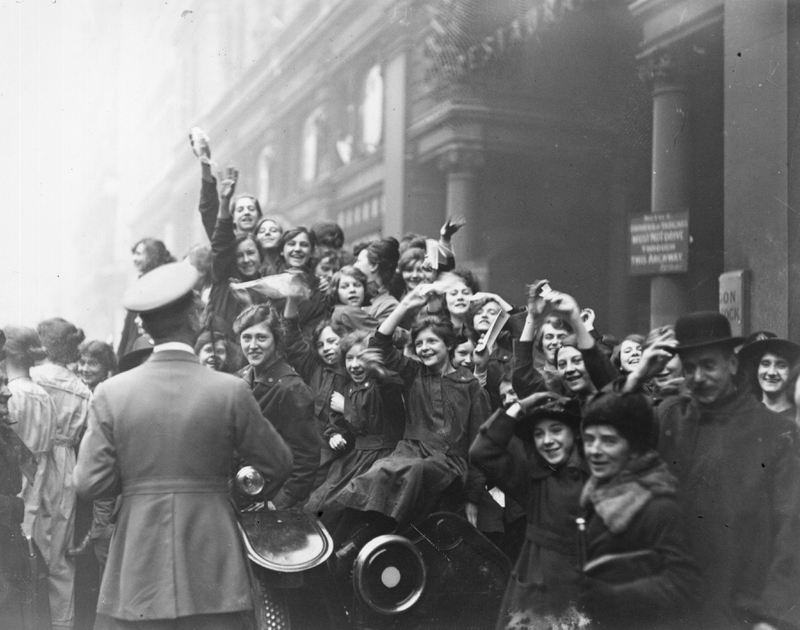World War I was in large part a trench war that encompassed all of Europe from 1914 through 1919. It was a bloody and brutal war which saw the introduction of new mechanized ways to kill and completely changed the world’s political climate. Little ground was won or lost, an estimated ten million soldiers lost their lives, and approximately twenty million wounded. Due to the massive involvement of many countries, including the United States, World War I was termed “the war to end all wars”. Looking back, however, we know that to be untrue. It was the peace treaty that ended World War I that ultimately led to World War II. But then why did World War I start?
When and Why Did World War I Start?
There has been much dispute and discussion as to the causes that led to World War I, but history has been able to provide some clarity. The immediate cause of the war was the assassination of the archduke of Austria-Hungary, Franz Ferdinand by a Serbian nationalist associated with the Black Hand, a secret military organization. The events leading up to Ferdinand’s assassination are a bit complicated, but there was much tension and political posturing between the European powers at the time. The six major powers split into alliances—Britain, Russia, and France on one side while Germany, Italy, and Austria-Hungary on the other. Many of the rulers at the time were cousins and as well as alliances forming, there was considerable family strife. Germany and Austria-Hungary were both building their respective armies and navies, against existing treaties, and Germany signed a secret agreement with the Ottoman Empire (present-day Turkey) who also wished to have influence in Europe. It was a complicated and volatile political climate and the assassination of Franz Ferdinand was merely the spark that set off the flame of war.
The Sequence of Events That Led to War
After the assassination of Ferdinand, Austria-Hungary issued an ultimatum to Serbia. They demanded that the assassins be brought to justice, attempting to crush any Serbian nationalist movement. Unsatisfied with Serbia’s response, Austria-Hungary declared war July, 1914. Since Russia had a treaty with Serbia, the country was bound to aid the country against Austria-Hungary, so Russia mobilized its army.
Germany, an ally of Austria-Hungary, declared war on Russia after its military mobilization, on August 1, 1914. France was an ally of Russia and now found itself at war with Germany and ultimately Austria-Hungary. Germany then declared war against France on August 3rd and then invaded Belgium in order to reach Paris, France’s capital.
Due to a treaty with France, Britain then declared war on Germany on August 4th, but Britain was also obligated by an older treaty to defend Belgium from any aggression. As a result of the treaties and declarations, Britain was now also at war with Austria-Hungary. As a result of Britain’s involvement, her colonies were now involved including South Africa, Canada, New Zealand, India, and Australia.
Japan declared war on Germany on August 23rd because of a military treaty with Britain and then Austria-Hungary declared war on Japan two days later. Italy was able to avoid war by citing clauses in the treaties with Germany and Austria-Hungary that stated Italy was only obligated to help in a defensive war, and this clearly was anything but. In May of 1915, Italy turned her back on Germany and Austria-Hungary by joining the other side.
American President Woodrow Wilson declared absolute neutrality and the country stayed out of the war until 1917. Germany used its navy against Britain and France, in particular and practiced unrestricted marine warfare. This tactic posed a serious threat to US shipping in the Atlantic and as a result, America was dragged into World War I on April 6, 1917.
How Did World War I End?
By 1918 many British citizens were protesting the war and German civilians were starving and dealing with a collapsing economy due to a British blockade of German ports. As a result, the navy revolted, causing German Emperor Kaiser Wilhelm II to abdicate the throne on November 9, 1918. A peace armistice was signed on November 11th and the Ottoman Empire, Russian Empire, Austria-Hungary, and the German Empire had ceased to exist.
The Treaty of Versailles officially ended World War I in 1919 and established the League of Nations in the hopes of preventing future wars and it enabled Europe to rebuild after the devastation. The treaty forced Germany to take full responsibility for the war, surrender some of its territory including those in Africa, pay reparations to Allied nations, and severely limited the size of its military. Germany joined the League of Nations in 1926, but then withdrew over growing resentment in 1933, followed by Japan and Italy, both now allies of Germany. Some argue that had Germany not been utterly beaten and humiliated at the end of World War I, that Hitler may not have been able to rise to power and ultimately start World War II.





View All Comments /Add Comment